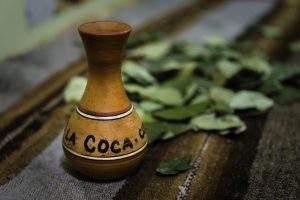
Forgiving bill considered for coca, marijuana or poppy farmers. Photo: Anthony Tong Lee/Flickr
Small-scale farmers who cultivate up to 38,000 m2 of coca, 84 m2 of marijuana, or 3800 m2 of poppy might not face any jail time thanks to new bill.
The current penalty for these offences ranges from six to 12 years in prison for marijuana. The new bill would lower it to one to four years; these shorter sentences are eligible for release or parole under Colombian law. After a year of not re-offending, the crime would be erased from all government records.
This is one of the main points of the bill on differential treatment for illegal growers presented on Tuesday by the Minister of Justice in Congress. The bill hopes to reduce the criminal impact for those at the lower levels of drug trafficking, and may also benefit those who are currently detained or who have already faced conviction, as they will then be suspended from criminal proceedings.
The idea has been met with much controversy; with uncertain estimates of the area used for illicit crops, the area of coca that would be decriminalized might be larger than that cultivated by families that live on coca crops, leaving plenty of legal maneuvering space for organized and systematic plantations controlled by drug traffickers.
Furthermore, anti-narcotics authorities expressed concerns that this bill might provide incentives for growing coca. “The current bill draft practically authorizes and motivates farmers to plant coca,” a senior Defense department official told El Tiempo.
Police estimates suggest that from a 38,000-ha coca plantation can produce up to 8 kg of coca per harvest, with four harvests each year. Each kilogram brings the farmer roughly COP$2,000,000 (USD$663), resulting in annual earnings of COP$64,000,000 (USD$21,200) before expenses. While these figures provide a very modest livelihood, illegal harvests are more profitable than staples such as potatoes or corn.
As pressure to tackle drug issues rises, other neighbouring countries are also shifting their legal stance towards drugs such as marijuana. Just last week, Peru voted to legalize marijuana for medical purposes. The majority of Congress approved the legislation supported by President Pedro Pablo Kuczynski with 68 votes in favour and only 5 against.





